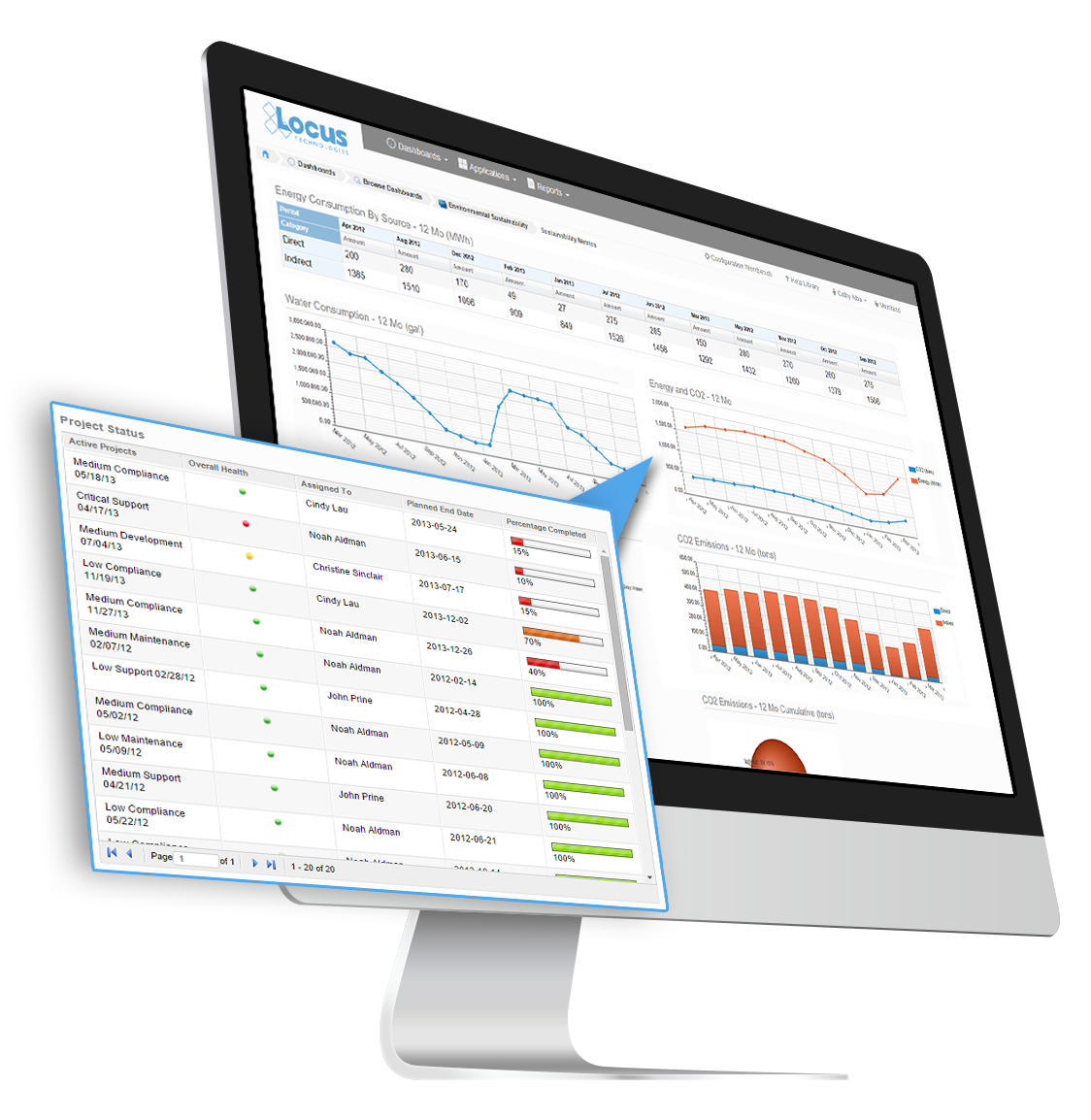Locus Technologies introduces new calculation engine for GHG emissions inventories
MOUNTAIN VIEW, Calif., 20 November 2015 — Locus Technologies (Locus), the leader in cloud-based environmental compliance and sustainability management software, introduces an all-new calculation engine to its newest platform to redefine how companies organize, manage, and calculate their greenhouse gas (GHG) inventories. The Locus Platform offers a highly configurable, user-friendly interface to fully meet individual organizations’ environmental management needs.
With an increased focus on the role that GHG emissions play in climate change, ensuring that companies’ emissions are reported accurately is more important than ever. GHG emissions reports are coming under increased scrutiny from regulators, stakeholders, verifiers, and financial auditors. Choosing the right calculation engine plays a critical part in remaining compliant with these rapidly evolving requirements and regulations.
Locus GHG calculation engine eases compliance burdens for GHG tracking
GHG inventories may be the result of mandatory state, regional, or national reporting programs, such as California Air Resource Board (AB32), U.S. EPA Mandatory Reporting Rule, or European Union Emissions Trading Scheme (EU ETS). Organizations need a GHG calculation engine that can calculate GHGs automatically and accurately from all emission-producing activities at all of their facilities anywhere in the world. The new Locus calculation engine supports simultaneous calculations using multiple methods so that users can input data once and report to federal, state, and voluntary reporting programs according to each proper protocol.
“The requirements and procedures for GHG reporting are varied, complex, and rapidly evolving. To ensure compliance, companies need a calculation engine that can handle complex equations using appropriate emission factors, conversion factors, and calculation methodologies for each reporting program. The right calculation engine can reduce the stress, time, and potential inaccuracies found in home-grown accounting methods,” said Neno Duplan, President and CEO of Locus.
New GHG calculation engine removes reporting inaccuracies
As a leading accredited GHG verification company in California, Locus observed challenges that many companies experience with GHG inventory calculation, coupled with the gross inadequacy of tools previously available in the market. Informed by the verification of hundreds of inventories, Locus developed the new calculation engine.
“Besides spreadsheets, many calculation engines are proprietary to software vendors and are not transparent. For GHG calculations to pass audits and meet cap & trade requirements, transparency is absolutely required. Some of these ’black box‘ calculation tools have not been sufficiently stress-tested in the market and are generating errors that cause enterprises to fail their GHG verifications. Locus’ calculation engine addresses these deficiencies and capitalizes on the architecture of the highly scalable Locus platform. All calculations are viewable and traceable through the tool to the original data inputs,” said J. Wesley Hawthorne, Locus’ Senior Vice President of Operations and an accredited GHG verifier.
When evaluating carbon management software with built-in calculation engines, companies must ensure that users are able to define both the calculation rules and display of calculated data for the purpose of reporting to various regulators. By giving end users the power to view, analyze, and make changes to analytic model data, Locus helps companies emphasize the transparency of the process and ensure that calculations are correct and that the company meets all verification requirements.
“We listened to industry users and created a configurable calculation engine that is easy to use, dynamically driven, transparent, provides reproducible calculations, and is easy to verify. This calculation engine, along with the Locus Platform, will improve companies’ data collection, analysis, and most importantly, reporting capabilities,” added Duplan.
Locus will conduct live demonstrations of the Locus Platform and calculation engine at the Locus booth at the National Association for Environmental Management (NAEM) 2016 Sustainability Software and Data Management Conference from March 15-16, 2016 in Tampa, FL.



